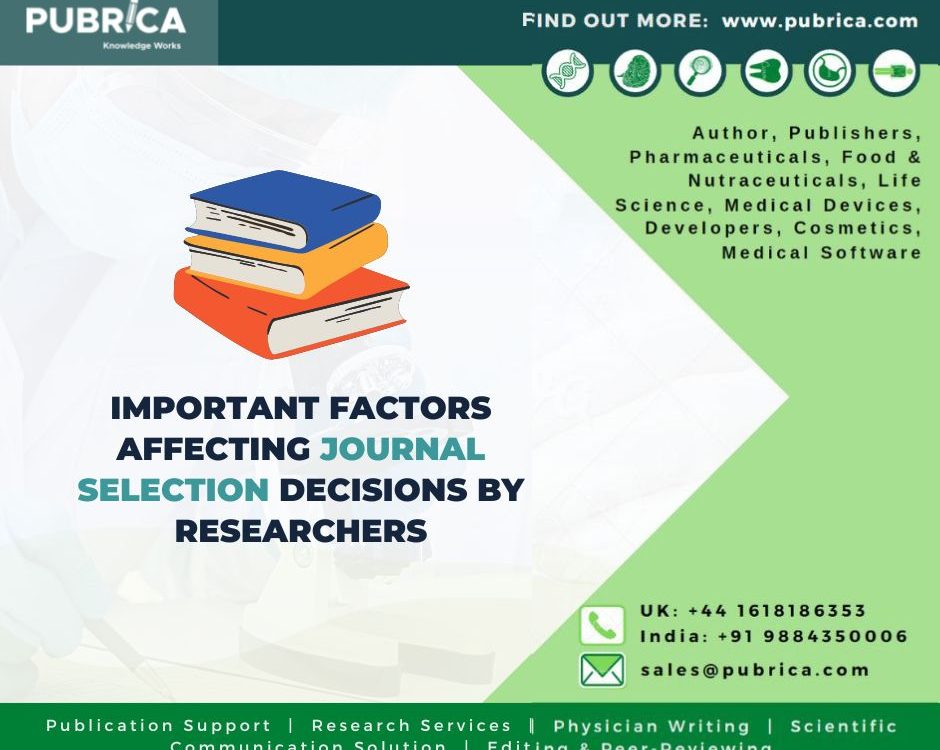
Intro to citation metrics
November 1, 2018
Publishing in a reputed medical journal
November 1, 2018Deciding on a journal?
Are you saying, “My research paper is ready, but where do I publish my paper?” This article answers your question.
Scientists possess tremendous insights for the benefit and progress of our community and this wealth has to be shared—or published. Most researchers set their sights on peer-reviewed journals. A vital decision to be made is this: what is the right journal? Not all scholarly/scientific journals are the same. Specialized and generalized—these are the 2 chief categories. Popular high-impact factor journals such as Science Direct, The Lancet, BMJ, Nature, and the like are top grade journals that are reviewed and read by many unlike general journals. Wide scientific disciplines have their own general purpose journals.
Deciding on a journal is no mean task and as an author you must remember these tips.
Understand your target readers
You must ask the following: (1) Are there exact readers for this paper whom I need to target? (2) Currently, which journals serve the target group? (3) Will mine suit the journal? (4) What are the aims and scope of the journal? (5) What are the guidelines? (6) What’s more important: visibility and readers, or communicating to my contemporaries in my field? (7) Should I spend more and reach more via open access publishing? (8) What publication timeframe am I looking at? (9) Should I go international or focus on a particular geography? (10) What journal impact factor am I aiming at?
Review the content of journals and look at the editorial board members of the journal you are thinking about. Consider the journals that you read and cite. There is a trade-off for both high-impact factor and low-impact journals. Specialized journals (for example, blood) focus on specific themes or hot topics within the subject and are less likely to share it for review which in turn may lead to rejection and rework on your part. The type of your research work in terms of novelty, discovery, and enhancement dictate whether you need to go for a specialized one or a generalized journal. There is no assurance of acceptance too.
Consider the following points
When choosing between a general and specialized journal consider the current career phase of the main author; if the author is well known and experience then high-impact journals may not be an immediate goal. But this is a priority for Ph.D. student seeking a grant funding for a start-up or professorship. Web and search engines simplify the process of honing on specific materials across a range of journals. With apt keywords, you can search and find a research paper even in an obscure journal.
In conclusion, the advent of social channels such as Twitter, Facebook, RSS feeds, etc. make it easier and swift to distribute and create hype on the published articles. However, this convenience may counterbalance some of the seeming restraints linked with specialized journals, since your research work may get quick coverage. Moreover, you can share your paper with the research circuit and thereby gain media coverage.



